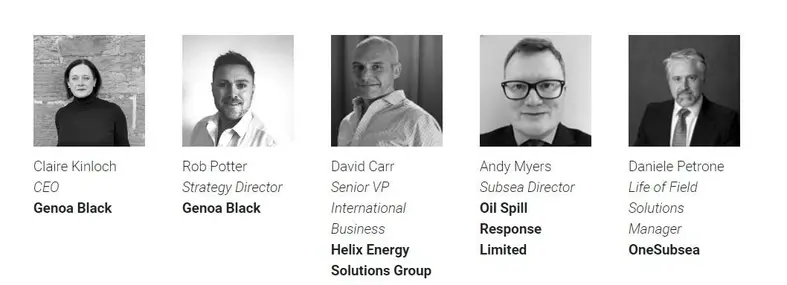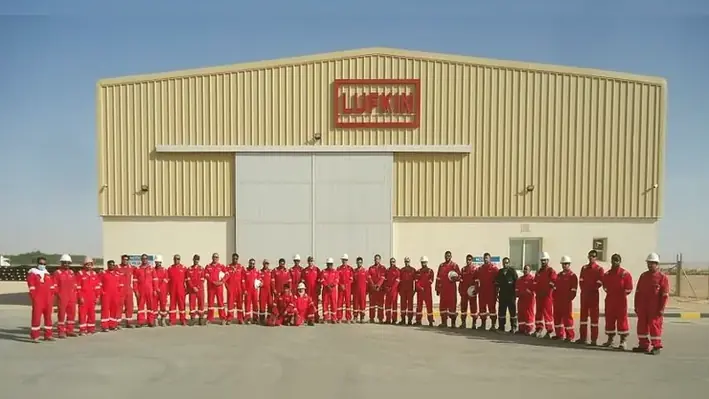
Following on from the OWI Global Awards hosted at the end of 2020, Rob Potter, Strategy Director at Genoa Black, and Claire Kinloch, CEO of Genoa Black, caught up with some of the winners as they hosted the webinar entitled ‘Turning 2020 lessons and achievements into 2021 opportunities’.
2020 blockers to agility
Potter began the webinar by asking what the key blockers were to agility in 2020, and how the panellists had each worked around this in their respective company. David Carr, Senior VP of International Business at Helix Energy Solutions, noted that the biggest challenges his company faced primarily revolved around travel restrictions and the migration to online working . However, Carr was quick to note the positives, outlining that actually the biggest effect of these was the acceleration of trends that had already been building within the industry. At Helix, Carr had noticed an increased efficiency and agility from working from home (suggesting they had actually signed more contracts than previous years) and that the switch to online had levelled the playing field when it came to operator to service company negotiations as the tradition of travelling to their office had been shattered. Carr said, “No one is doubting that it was a terrible year but there was an acceleration of a lot of the changes we were expecting to see and needing to see that perhaps would not have happened otherwise”.
Echoing Carr’s sentiments on the levelled playing field, Daniele Petrone, Life of Field Solutions Manager at OneSubsea, also pointed to his company’s budgets and plans, which were suddenly thrown awry last March. The manager suggested that suddenly there was a dramatic need to be extremely flexible, adaptable and patient to work around the fluctuating circumstances. As well as thanking his customers for their continued understanding throughout the pandemic, he highlighted the heroic effort of his staff, some of whom had remained mobilised offshore for more than a year without coming home. For Petrone, 2020 had revealed the importance of collaboration, both within the company and at an industrial level, as key to success.
Positive initiatives from 2020
Kinloch introduced the next question, enquiring what the best initiatives put into place in 2020 were and how these can be taken forward and replicated. For Andy Myers, Subsea Director of Oil Spill Response Limited, the most important steps taken in 2020 for his company were all around digitalisation. For a response company, it was paramount to demonstrate that they had the capabilities to respond as quickly as possible, even in the disrupted circumstances, and this prompted a real look into the digital tools that could offer optimal performance, prioritising fast communication above all. Through developments such as a dashboard on their website and investments into user interfaces the company sought to enhance interactions with their clients and ensure people were fully aware how they could respond to any incident. Myers commented, “A lot of this stuff was a reaction but will continue as there is a lot of positives to be taken from them. A lot of the tools will be maintained because they are cost-effective”
Carr admitted that the majority of the initiatives that came to fruition last year for his company, such as the decision to move some business to offshore renewables, were actually started prior to the pandemic, but they paid dividends and meant that much of their business was still utilised. The VP did however pick out that COVID brought into sharp focus the need to stay on top of the safety of his crews, and that it prompted a drive to monitor not only the physical health (with a new biological mindset) but also the mental health of employees.
Benefits of collaboration
For the third and final question, Potter asked what benefits were found in the increased collaboration that each panellist had witnessed within their company. In his line of work, Myers stated that no single company can provide a full oil spill response on their own, it is therefore more efficient and makes fiscal sense to work in collaboration with others, and this was a lesson that nearly all of the offshore industry had taken on board in 2020. He claimed that the shared experience of switching to online working, and the ease of communication that this has opened up, has made people far more open to collaboration than perhaps they have been in the past.
Petrone added to this as he said, “Collaboration has been key to any projects actually happening - even the operation for which we won the award wouldn’t have been possible without collaboration within our company and with our partner Helix. Some jobs would just simply not fly from an economic standpoint. That has been the key”.
Concluding the session, Kinloch identified that collaboration, which will open up companies to new ideas and pull in more diverse teams; digitalisation, which has given many companies the ability to reach more markets and re-balanced some of the relationships within the industry; and diversification, which can be used as a tool to cover all bases and give businesses the resilience to survive; were the key lessons to embrace and take into 2021. She said, “There has been an immense amount of change over the last 12 months. The biggest question moving forward is around managing this change and understanding what this has done to our culture, not just at an industry level but also how we operate within our own business. It is something that we will all have to catch up on and ask ourselves how can we use the pandemic now to our advantage”.




